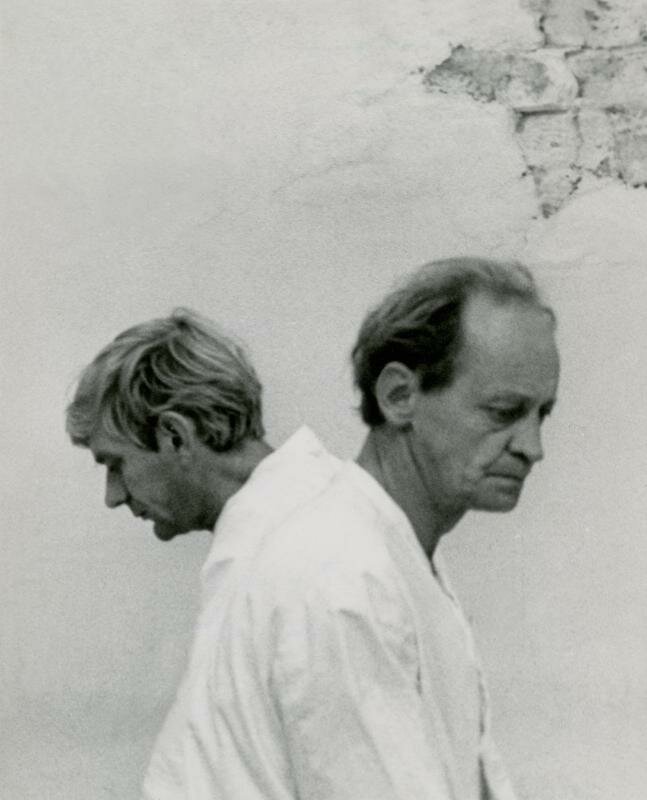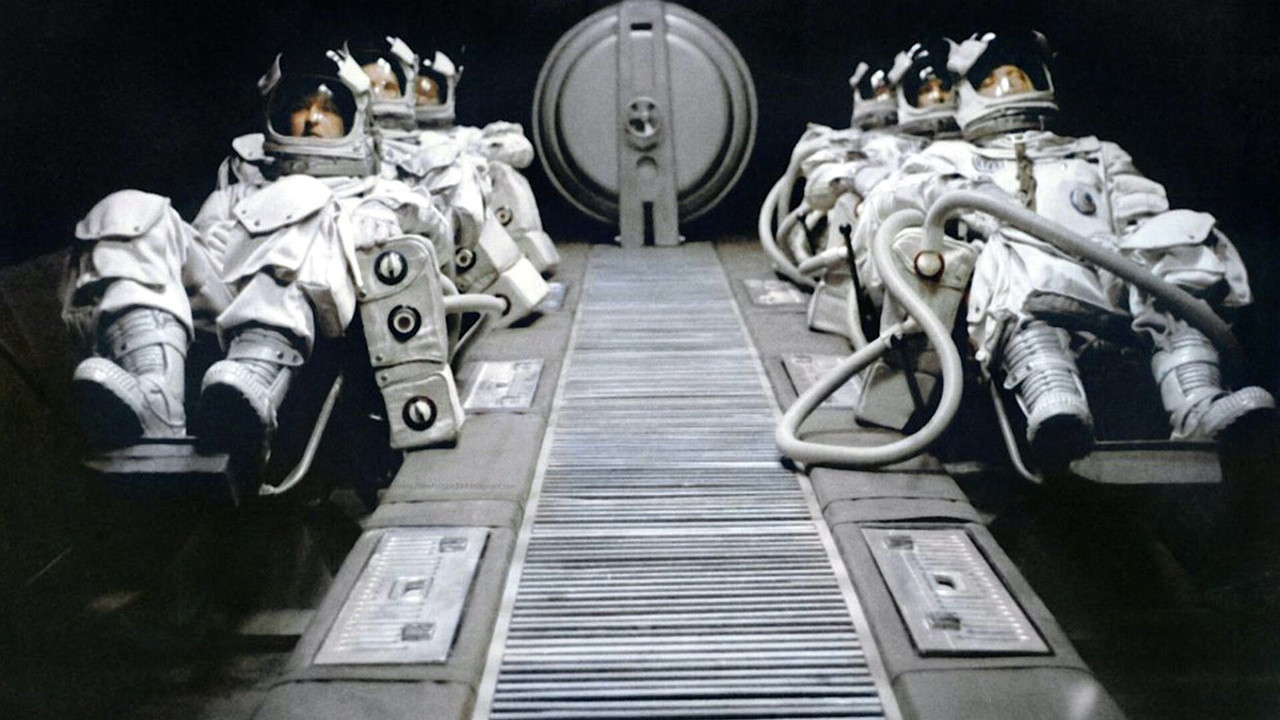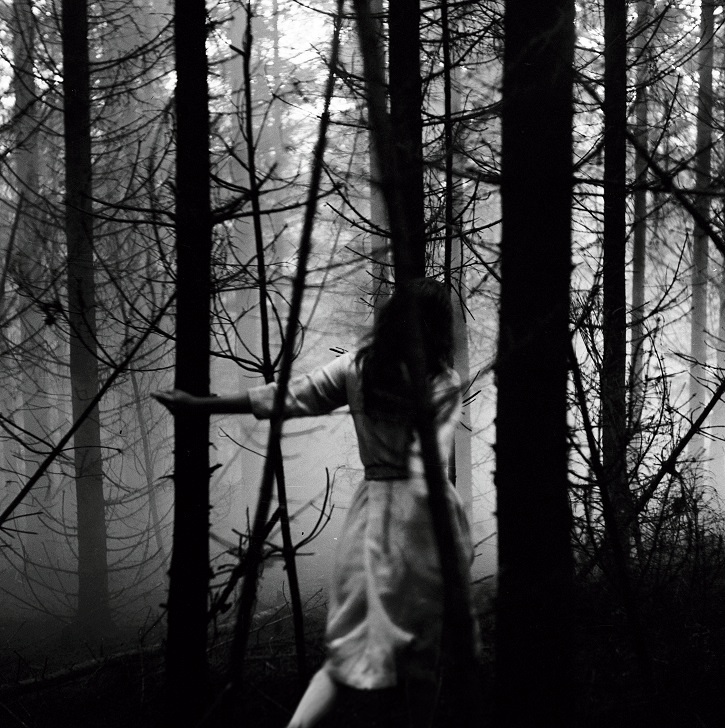Surma hinda küsi surnutelt [Ask the Dead About the Price of Death] (Kaljo Kiisk, 1977)
Dec
1
1924
.png)
A woman wearing a crochet skull cap and an ominous look on her face. DP: Jüri Sillart.
Estonia
“Stop shooting! Stop democracy!”Hullumeelsus [Безумие / Madness] (Kaljo Kiisk, 1968)
Sep
15
International Day of Democracy

Windisch (Jüri Järvet) pacing, blending in with a white-clad inmate. DP: Anatoliy Zabolotskiy.
On the International Day of Democracy, the word “democracy” is spoken.
– Person Nr. 1
The Gestapo arrives to liquidate the inmates of a mental hospital. Then Windisch, plainclothes Nazi, brings them a letter: there's a special commando hiding amidst the 583 patients. Interrogating them slowly pushes Windisch among them.
“He began thinking about the innocence of machines, about how man had endowed them with intelligence and, in doing so, had made them an accomplice of his mad adventures. About how the myth of the golem — the machine that rebelled against its creator — was a lie, a fiction invented by the guilty for the sake of self-exoneration.”Test pilota Pirxa [Pilot Pirx's Inquest] (Marek Piestrak, 1979)
Apr
12
International Day of Human Space Flight

Men and nonlinears to board the ship set for Saturn's Cassini Division. DP: Janusz Pawłowski.
A manned spaceship for the International Day of Human Space Flight
– Stanisław Lem, Opowieści o pilocie Pirxie (1968)
Commander Pirx is sent out on a secret mission to evaluate “nonlinears” – androids – to determine if they can be used for future space flights. In a blind test, androids and humans form a crew for Pirx to investigate and identify.
Libahunt [Лесная легенда / Werewolf] (Leida Laius, 1968)
Jan
13
soup

A dinner table shown from above. Several people, we mainly see their hands and wooden spoons, eat from a hand-carved bowl. DP: Algimantas Mockus.
“Better to be with wolves in the forest, than with people like you!”Libahunt [Лесная легенда / Werewolf] (Leida Laius, 1968)
Jan
13
wolf moon

Tiina (Ene Rämmeld) walking through the forest. DP: Algimantas Mockus.
Wolves for Wolf Moon, the first full moon after Yule.
In Livonia, which covers modern day Estonia, the 17th century was when the werewolf trials reigned.
Tiina, a young liberated woman taken in by a family of farmers after her mother was put on trial for witchcraft, is accused of hunting with the wolves as a werewolf by her half-sister with whom she shares a lover.
“Come, this party is for hard-working people!”Jaanipäev [St. John's Day] (Andres Sööt, 1978)
Nov
5
Bonfire Night

The neatly stacked pyre on jaanipäev with Tallinn's dreary socialist Plattenbau on the horizon. DP: Andres Sööt.
As long as they can remember, jaaniõhtu is when Estonians gather to celebrate midsummer. It started, they'll tell you, 4000 years ago when Kaali appeared. Ever since, come rain or shine, come socialism or capitalism, the people gather and light bonfires in its remembrance. Some sing the songs of the elders, memory willing. Others see this as their moment to shine. As a great musician perhaps. A faithful worker. Or a lover, for jaanipäev; #midsummer night.